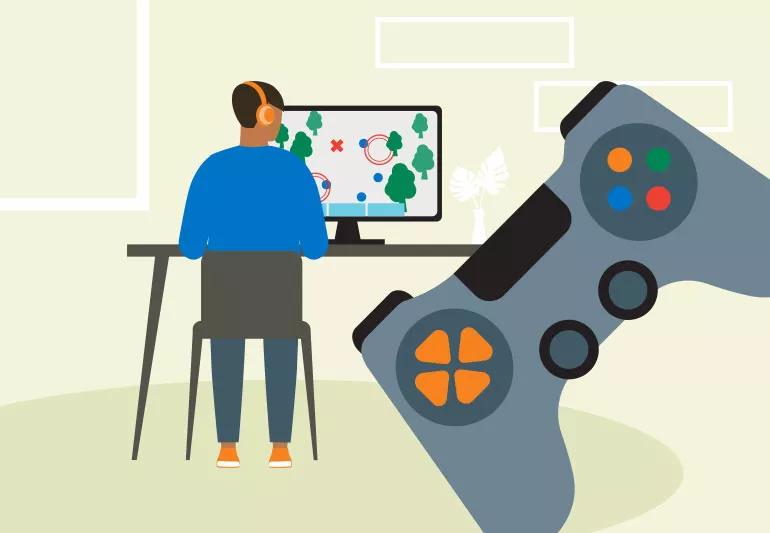Timeline Tales
Exploring the stories that shape our world, one timeline at a time.
Level Up Your Life: What Video Games Can Teach Us About Real-World Skills
Unlock your potential! Discover how video games can teach essential real-world skills and transform your life for the better.
From Pixels to Practicality: Real-World Skills Gained Through Gaming
Gaming often gets a bad rap, but the truth is that real-world skills gained through gaming are numerous and impactful. Many players develop critical thinking abilities as they navigate complex narratives and solve intricate puzzles. These skills translate seamlessly into everyday scenarios, such as strategizing in difficult situations or improving decision-making under pressure. Furthermore, multiplayer and cooperative games enhance communication and teamwork, teaching players how to collaborate effectively with others while honing their social skills.
Beyond cognitive advantages, gaming also cultivates practical skills that can be applied in various professions. For instance, simulation games provide virtual environments that mimic real-world tasks, such as managing businesses or operating machinery, offering players hands-on experience without the associated risks. Additionally, games that focus on crafting, building, or resource management encourage creativity and time-management skills. Overall, the positive outcomes from engaging in gaming extend well beyond the screen, equipping individuals with valuable abilities that can enhance their personal and professional lives.

Game On: How Video Games Can Enhance Your Problem-Solving Skills
In today’s digital age, video games have become more than just a source of entertainment; they serve as powerful tools for enhancing cognitive abilities. Engaging in various genres of games, particularly strategy and puzzle-based formats, can significantly sharpen your problem-solving skills. As players navigate intricate challenges, they learn to analyze situations critically, weigh options, and make calculated decisions quickly. This gamification of problem-solving fosters a mindset that encourages creative thinking, as players must often devise unique tactics to overcome hurdles.
Moreover, the collaborative nature of many online games encourages teamwork and communication, both of which are essential components of effective problem-solving. When players work together to achieve a common goal, they share insights, strategies, and techniques that can enhance overall performance. This synergy not only improves the gaming experience but also translates into real-world scenarios where group problem-solving is crucial. Therefore, embracing the world of video games can be an enjoyable and beneficial way to strengthen your cognitive prowess and equip you with vital skills for tackling everyday challenges.
Leveling Up in Life: What Gamers Can Teach Us About Resilience and Teamwork
In the realm of gaming, players often face overwhelming challenges that require a strong sense of resilience to overcome. Whether they are battling fierce bosses or navigating complex quests, gamers learn that failure is a stepping stone to success. Each defeat offers valuable lessons that enhance their skills and strategies, demonstrating that setbacks are not the end but rather opportunities for growth. This mindset can be applied to real life, where individuals encounter obstacles in various forms. By embracing the concept of leveling up, we can teach ourselves to approach challenges with determination and a willingness to adapt, ultimately fostering a resilient spirit that can tackle any hurdle in our path.
Moreover, teamwork is a crucial element that gamers often excel at. Multiplayer games emphasize collaboration, where players must coordinate efforts and leverage each other’s strengths to achieve a common goal. This experience teaches us the importance of communication and trust within a team dynamic. In life, just like in gaming, the ability to collaborate effectively can lead to remarkable outcomes. Building a supportive network, sharing responsibilities, and celebrating collective victories not only enhances personal growth but also cultivates a sense of community. By applying the principles of teamwork learned in gaming, we can create thriving environments in our personal and professional lives, ultimately enhancing our overall resilience.